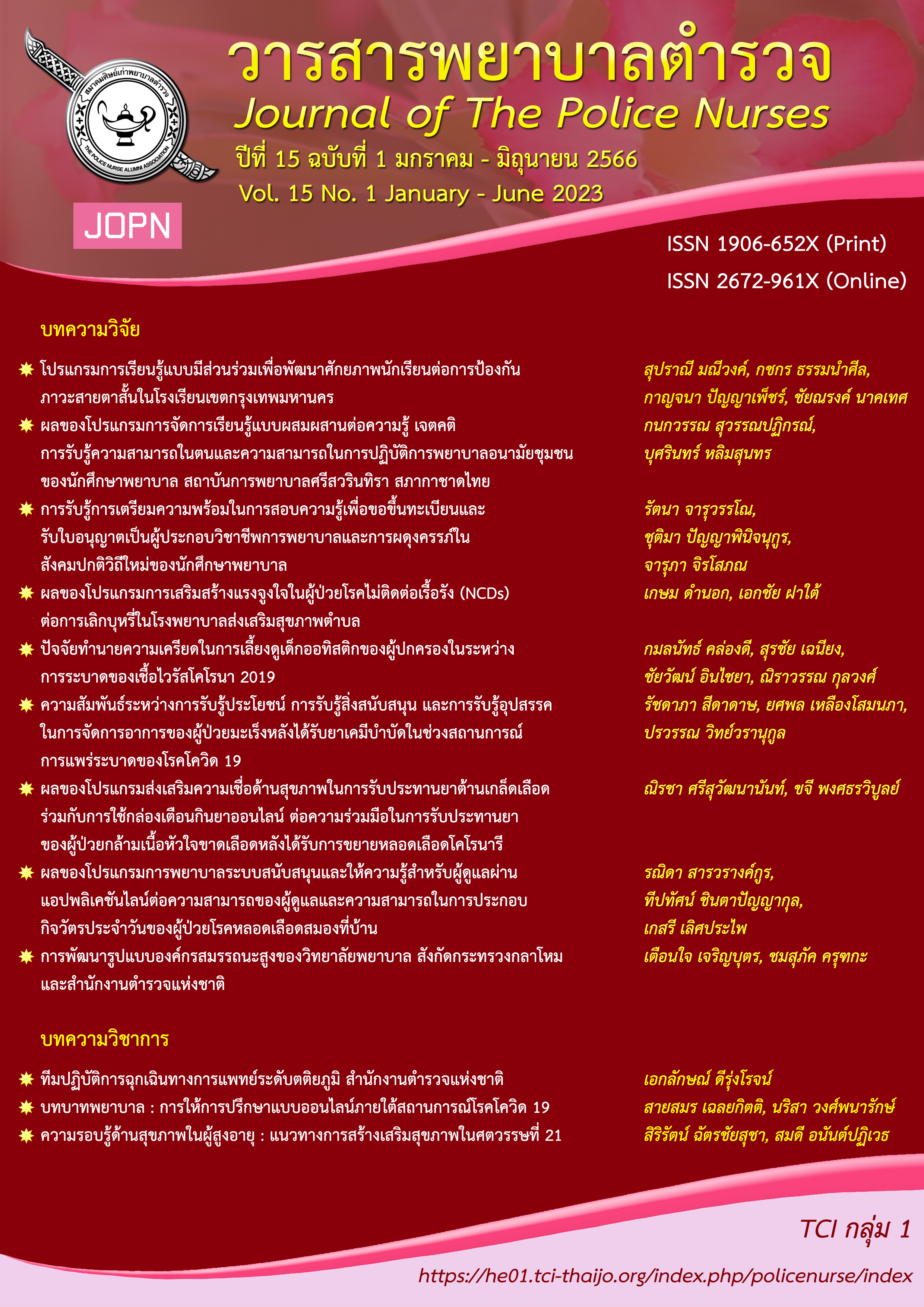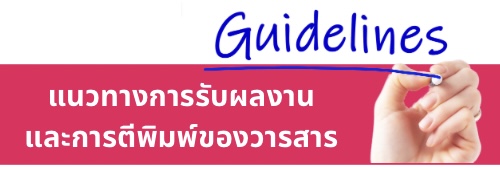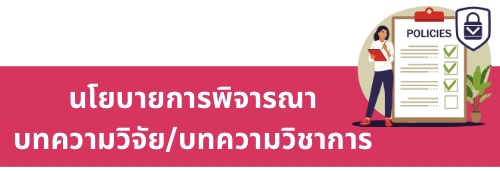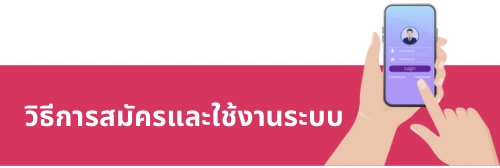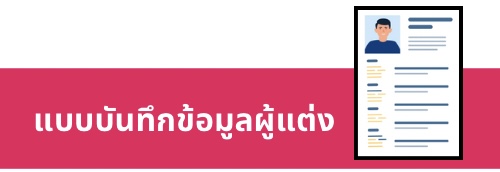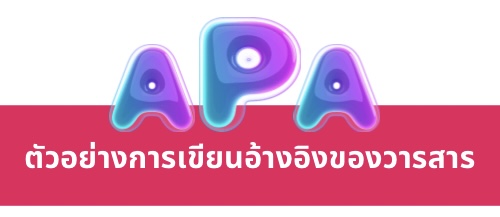ความรอบรู้ด้านสุขภาพในผู้สูงอายุ : แนวทางการสร้างเสริมสุขภาพในศตวรรษที่ 21
คำสำคัญ:
ความรอบรู้ด้านสุขภาพ, ผู้สูงอายุ, การเสริมสร้างสุขภาพ, ศตวรรษที่ 21บทคัดย่อ
ประเทศไทยกำลังเข้าสู่สังคมสูงอายุโดยสมบูรณ์ ผู้สูงอายุกลายเป็นประชาชนกลุ่มใหญ่ที่สุดในสังคมที่มีการใช้บริการทางการแพทย์และการเจ็บป่วยเรื้อรังมากกว่าประชากรกลุ่มอื่น ความรอบรู้ด้านสุขภาพมีความสัมพันธ์กับสุขภาพกายและสุขภาพใจ ดังนั้น บทความนี้จึงมุ่งนำเสนอการวิเคราะห์ปัจจัยแห่งอุปสรรคของความรอบรู้ด้านสุขภาพของผู้สูงอายุ และนำเสนอแนวทางการสร้างเสริมสุขภาพที่ดีของผู้สูงอายุในศตวรรษที่ 21 ปัจจัยแห่งอุปสรรคของความรอบรู้ด้านสุขภาพมี 3 ปัจจัย ได้แก่ 1) การขาดความสามารถในการเข้าถึงเทคโนโลยีดิจิทัล เพื่อการเรียนรู้ด้านสุขภาพ 2) ความเสื่อมทางด้านร่างกายที่ส่งผลต่อการเรียนรู้ของผู้สูงอายุ และ 3) การขาดการสนับสนุนทางครอบครัวและสังคมของผู้สูงอายุ ส่วนแนวทางการสร้างเสริมสุขภาพของผู้สูงอายุ ประกอบด้วย
3 แนวทาง คือ 1) การส่งเสริมความสามารถในการเข้าถึงและใช้เทคโนโลยีดิจิทัล 2) การเลือกและใช้สื่อดิจิทัลที่มีความเหมาะสมและรู้เท่าทันสื่อ และ 3) ครอบครัวมีส่วนร่วมในการสร้างเสริมความรอบรู้ด้านสุขภาพ โดยประยุกต์แนวทางการสร้างเสริมสุขภาพกับแนวคิดและคุณลักษณะพื้นฐาน 6 ประการของการพัฒนาความรอบรู้ด้านสุขภาพ และครอบคลุมความรอบรู้ด้านสุขภาพ 3 ระดับ บุคลากรทีมสุขภาพจึงควรมีบทบาทที่สำคัญในการช่วยให้ผู้สูงอายุและครอบครัวได้สามารถเข้าถึงเทคโนโลยีและสื่อดิจิทัลทางด้านสุขภาพที่เชื่อถือได้ ทันสมัย รู้เท่าทัน และเหมาะสมกับผู้สูงวัยเฉพาะราย เพื่อนำไปใช้ในการดูแลสุขภาพของตนเองในชีวิตประจำวันได้จริง
Downloads
เอกสารอ้างอิง
Centers for Disease Control and Prevention (CDC). (2022). Importance of health literacy. Retrieved from https://www.cdc.gov/healthliteracy/developmaterials/audiences/olderadults/importance.html
Chaoayachai, W., Prompahakul, P., & Prasertsang, A. (2021). Health literacy and new normal in older adults. Journal of The Royal Thai Army Nurses, 22(2), 41-48.
Coleman, C. (2020). Health literacy and clear communication best pactices for telemedicine. Health Literacy of Research and Practice, 4(4), e224-e229. https://doi.org/10.3928/24748307-20200924-01
Department of Older Persons (DOP). (2565). Elderly statistics. Retrieved from https://www.dop.go.th/th/know/side/1/1/1159
Geboers, B., Winter, A. F. D., Spoorenberg, S. L., Wynia, K., & Reijneveld, S. A. (2016). The association between health literacy and self-management abilities in adults aged 75 and older, and its moderators. Quality of Life Research, 25(11), 2869-2877.
Liu, Y. B., Chen, Y. L., Xue, H. P., & Hou, P. (2019). Health literacy risk in older adults with and without mild cognitive impairment. Nursing Research, 68(6), 433-438.
Loipha, S. (2013). Internet use behavior of Thai elderly. Information, 20(2), 13-24.
National Statistical Office, Ministry of Digital Economy and Society (NSO). (2021). The 2021 survey of the older persons in Thailand. Bangkok: Statistical Forecasting Division National Statistical Office.
Nutbeam, D. (2000). Health literacy as a puplic health goal: A challenge for contemporary health education and communication strategies into the 21st century. Health Promotion International, 15(3), 259-267.
Nutbeam, D., & Lloyd, J. E. (2020). Understanding and responding to health literacy as a social determinant of health. Retrieved from https://pubmed.ncbi.nlm.nih.gov/33035427/
Smith, G. D., Ho, K. H. M., Poon, S., & Chan, S. W. C. (2022). Beyond the tip of the iceberg: Health literacy in older people. Journal of Clinical Nursing, 32, e3-e5. https://doi.org/10.1111/Jocn.16109
Srithanee, K. (2017). Relationship between health literacy and quality of the elderly’s life at the central part of the North-East Thailand. Journal of Health Systems Research, 11(1), 26-36.
Thankratok, P., Boonpradit, P., & Palacheewa, N. (2022). Factors predicting health literacy among older adults with chronic diseases in community. Thai Journal of Cardio-Thoracic Nursing, 33(1), 215-230.
Thankratok, P., Cheevakasemsook, A., & Angsuchoti, S. (2019). Digital competency of Thai professional nurses. Journal of Nursing Science and Health, 42, 1-12.
Trainattawan, W., Phianthanyakam, N., Yingyoud, P., Chaiwang, P., Petchsuk, R., & Thangkratok, P. (2020). Improving health literacy among elderly. Journal of Medicine and Health Sciences, 27(3), 131-144.
Trainattawan, W., Wirojratana, V., & Watanakukrilert, D. (2019). Factors influencing health literacy among older adults. Journal of Health Science Research, 13(2), 41-51.
Wells, T. S., Rush, S. R., Nickels, L. D., Wu, L., Bhattarai, G. R., & Yeh, C. S. (2020). Limited health literacy and hearing loss among older adults. Health literacy research and practice, 4(2), e129–e137. https://doi.org/10.3928/24748307-20200511-01
Wit, L. D., Karnaki, P., Dalma, A., Csizmadia, P., Salter, C., Winter, A. D., & Meijering, L. (2020). Health literacy in the everyday lives of older adults
in Greece, Hungary, and the Netherlands. International Journal of Environment Research and Public Health, 17(7), 2411. https://doi.org/10.3390/ijerph17072411
World Health Organization (WHO). (2022). Aging and health. Retrieved from https://www.who.int/news-room/fact-sheets/detail/ageing-and-health
Wuthirangsi, A. (2021). Digital literacy of elderly. Interdisciplinary Studies Journal, 21(1), 90-106.
ดาวน์โหลด
เผยแพร่แล้ว
รูปแบบการอ้างอิง
ฉบับ
ประเภทบทความ
สัญญาอนุญาต
ลิขสิทธิ์ (c) 2023 วารสารพยาบาลตำรวจ

อนุญาตภายใต้เงื่อนไข Creative Commons Attribution-NonCommercial-NoDerivatives 4.0 International License.
ผลงานที่ได้ตีพิมพ์แล้วจะเป็นลิขสิทธิ์ของวารสารพยาบาลตำรวจ

